Plumbing
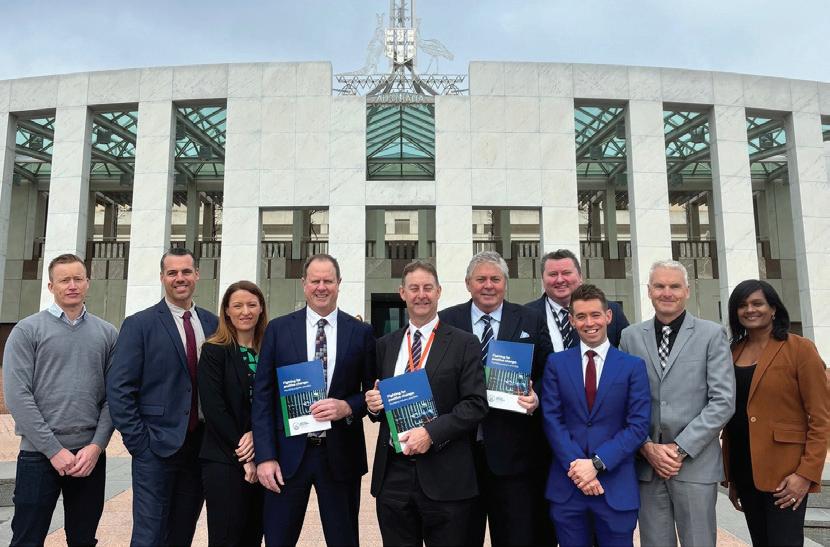






Proudly South Australian owned and operated since 1952.
Our wide range of specialist equipment is operated by the most experienced technicians in the country and will enable us to find solutions to all of your sewer, stormwater and hydraulic problems.
APMS has pioneered the use of UV cure pipe relining in South Australia and continues to develop new and emerging technologies to provide safe and effective services to our wide range of clients.
We work throughout all areas of Southern Australia.

Water Recycling Combination Jetvac and Hydrojet Drain cleaning
Confined Space entry
Hydro-excavation (non destructive digging)

www. apms-sa.com .au

93-99 Mooringe Ave
Location of underground services
CCTV inspections of new and existing stormwater and sewer
Patching and relining of pipework

service@ apms-sa.com .au

Start your journey today towards a greener tomorrow with Envirosun or Enviroheat

Up to 71% more economical than traditional units

Rebates up to $2000 may apply


Camden Park SA 5038 8427 2525


Draw 0.6kw of power
Require only a standard weather proof power point
Warranty – 5 year tank, 3 years refrigerant components Enviroheat Heat Pump
Has a back up element.
Dual anodes for extra corrosion resistance.
All standard installation parts included – no hidden costs
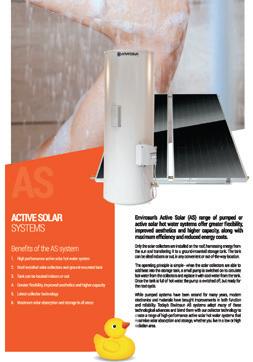
mASTER
m: 0438 282 448
e: andrew.clarke@mpasa.com.au
Jodie Bischoff People, Careers & Wellness
e: jodie.bischoff@mpasa.com.au
cassie.mason@mpasa.com.au
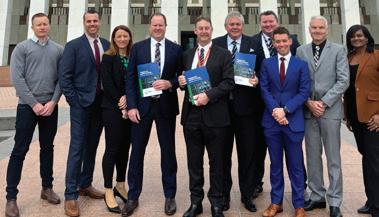
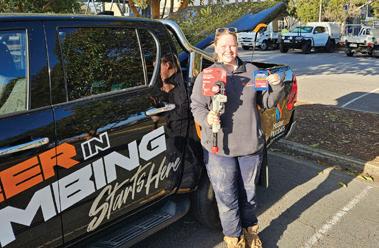
rhia.daniel@mpasa.com.au


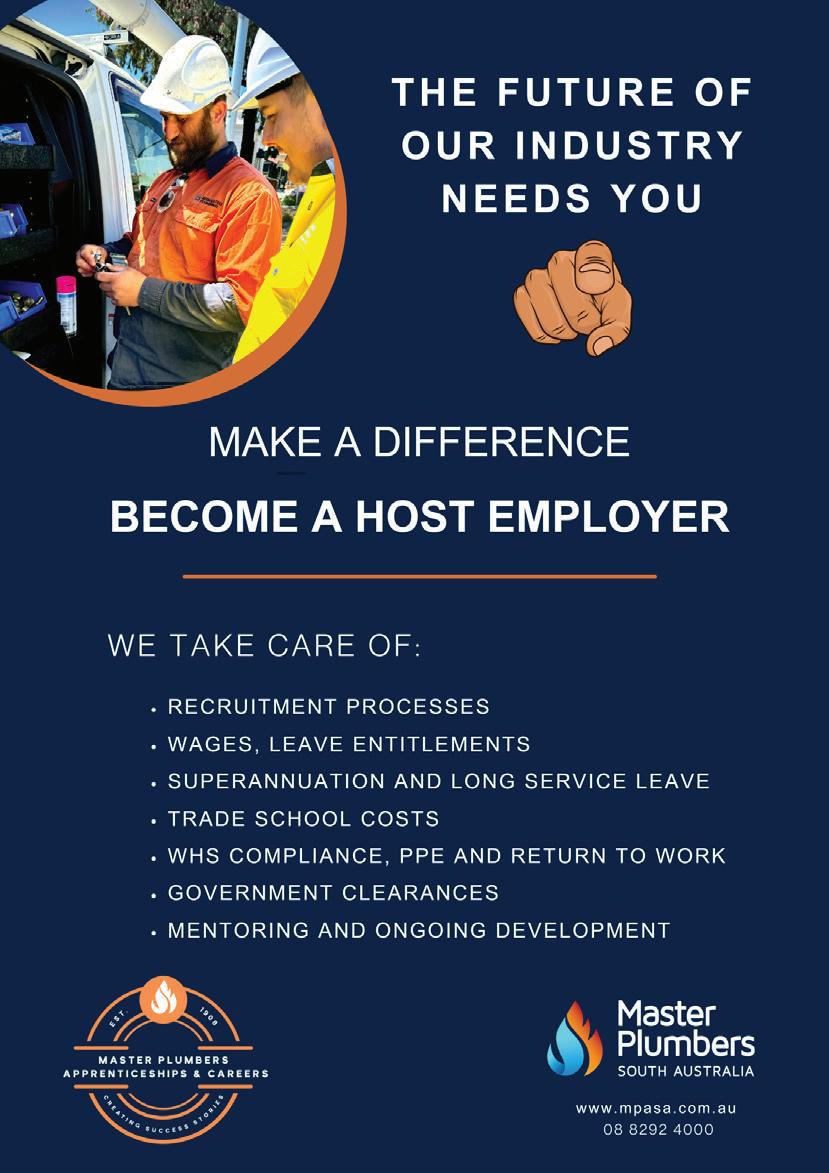

bY AnDREW ClARKE EXECuTiVE OFFiCER
Plumbers Visit Parliament – Canberra August 2024
On Monday 19th August a delegation from MPANZ visited the Nations Capital to meet and discuss a whole range of priorities surrounding the Plumbing Industry.
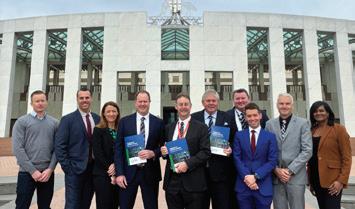
Our publication “Fighting for Positive Change’’ was provided to politicians and representatives from all parties. Some of the key industry issues discussed included:
- Skills and Training – funding for the future workforce
- Migration – the troubles industry face with poor management around migrant skillsets and meeting the Australian competency standards
- Housing / Financing new homes in the future –what does the future hold for future generations in purchasing their first property.
- Economy and future forecasts / Productivity concerns – A real numbers game around the state of the economy, the declining level of productivity in industry.
- Energy transitions / Gas forecasts / Nuclear Reactors – what does the future hold in energy transitions, sustainable energy sources and reaching international standards
- Workplace Legislation – impacts on businesses
- Red tape for business – cost to do business is increasing, how can this be sustainable with wage pressures etc

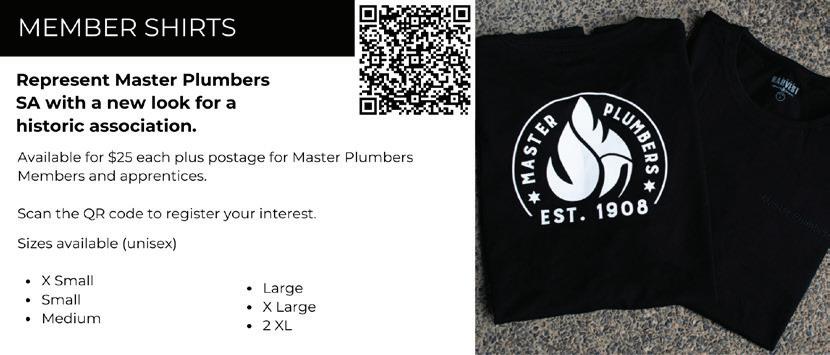
The Fighting for positive change document is available to view via our website and the outcome from such a proactive meeting is that future discussion with the relevant Ministers will be an ongoing agenda for the national MPANZ group.
I would like to personally thank Peter Daly (CEO MPA Vic) and his team for coordinating such an outstanding program.
New staff role - Member Business Advisor. MPASA has employed Cassie Mason on a part time basis to provide members with additional support in operational and compliance needs.
Cassie has been part of the Associations preferred partners group for a number of years assisting specifically in HR and WHS systems and processes.
Through this new initiative, Cassie will be a value-add to members, providing support and assistance in compliant business practices as well as providing further information on what MPASA can offer and / or provide leads to better engagement with our business / corporate partners. The old saying “you don’t know what you don’t know’’ is very true.
In today’s busy world where we get more emails, more surveys, more online marketing and more disruptions through social media platforms, nothing beats the in person, sit down session with some comfort knowing there is a focused agenda around improving business operations.
Contact Cassie via email: cassie.mason@mpasa.com.au or phone the office on 8292 4000 for further details.
Why Your Liability Insurance May Not Cover You for High Work – And Why That’s a Problem
As a plumber, you’re used to working across different sites, whether small construction jobs or “Mum and Dad“ properties and at various levels and heights, whether it’s the ground floor or the top of a building.


But did you know many liability insurance policies exclude coverage for work above certain heights? These exclusions often apply to jobs as low as two stories or 10m, and this includes both external and internal work!
Let’s say you’re working on the top floor of a multi-storey building, and a water leak causes damage not just on that floor but to several below. If your policy has height exclusions, the entire claim could be rejected, leaving you to cover all the cost of damages.
Be Covered Insurance specialise in trades insurance and works closely with the MPA SA. To find the right coverage at the best price, for a review or quick insurance check-up, call Candice on 08 7092 2242 or email candice@becoveredins.com.au – and be sure to mention you’re a Master Plumbers member!
Licensing changes
MPA SA has been actively speaking to the relevant government departments / Ministers / Commissioners around the massively confusing licensing changes in our sector.
Consumer Business Services (CBS) has currently been under extreme pressure for various reasons and it is disappointing to be isolated (as have other key government agencies such as the OTR) from the consultation around these changes.
To make significant changes without consultation is definitely a poor judgement error and the impact this has had on the industry has been considerable.
The construction sector is under enough pressure with increasing business costs, a lack of skilled workers, cost of living pressures causing payment delays and now further restrictions and restraints for renewing licenses. Communication between government and industry must improve!
bioCycle is Australia’s best known and most trusted name in aerobic wastewater treatment systems – and we’ve gained that reputation through the quality and reliability of our products, the ‘smartness’ and simplicity of our technological processes with the excellence of our service.
bioCycle is proud to announce our newest tanks in its range:
• The bioCycle Pro full concrete tank advanced secondary treatment with deeper invert to minimise the need for small risers.
• The bioCycle Pro full plastic tank advanced secondary treatment for tricky installations in remote, hilly and tight sites / areas.
The latest bioCycle tanks are all advanced secodary treatment tanks, which ensures they have a higher degree of treatment than the World Standard AS 1546:2001. This standard governs quality of manufacture in addition to prescribing a method for performance evaluation.
bioCycle septic tanks and associated products are manufactured using only the highest-quality materials and electrical components such as pumps, blowers and electronic controls. We work closely with our Suppliers to develop appropriate specifications and quality measurement procedures – your guarantee of a consistently high quality product.
For more information please contact: Danny Byrne 0408 824 544, 08 8381 9100 1300 363 399

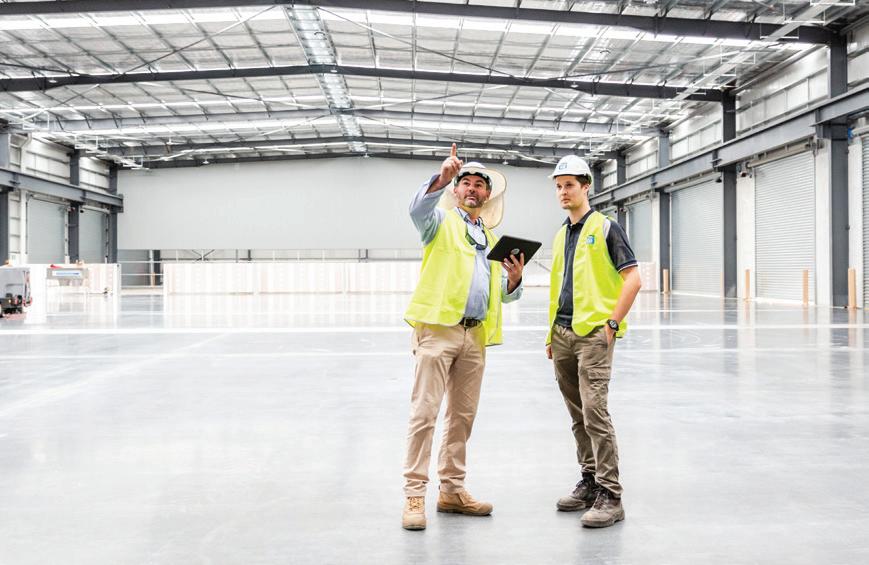


There are many pressures on the building and trades sector, and a great number of South Australian consumers rely on this industry to deliver quality work and services, which is why the industry continues to be a key focus of Consumer and Business Services (CBS). CBS has identified two priority areas for the building and trades industry.
The first is cracking down on unlicensed activity. CBS is concerned about individuals or companies that perform unlicensed building work, including those who operate outside the scope of their licence conditions. This conduct is not only illegal, but it puts consumers at risk of poor quality and sometimes even unsafe work. Unlicensed activity can be detected in several ways, including:
• through CBS’ proactive monitoring and compliance program
• in the course of providing advice and dispute resolution to consumers who have contacted CBS for assistance
• receiving reports from industry and members of the public when they suspect a business or individual is operating without a licence.
By weeding out the dodgy operators, this also helps protect the rest of the industry that do the right thing in complying with their licensing and consumer law obligations. The second priority area is individuals or companies who take or make demands for unlawful payment. It is a real problem when tradespeople take money for a job they do not intend to complete or even start, or they supply something different from what they promised.
Plumbing businesses themselves know how frustrating it is if they have paid a supplier and not received the goods, and there are legal protections for small businesses, but CBS’ key focus is on consumer protection. While it is important that members of the building and plumbing industries comply with all legal requirements, it is these two priorities that CBS will be devoting greater attention to over the next year.
Enforcement action can be taken - such as prosecution, disciplinary proceedings, expiation notices and warnings –but CBS is reminding industry that full compliance is always the much better option. Industry members are encouraged to report any concerns about unlicensed or other unlawful trades activity to CBS via the online form at cbs.sa.gov.au/contact. Any queries about licensing requirements can be directed to CBS via occupational@sa.gov.au or phone 131 882.
Starting a new job doesn’t mean starting all over again.
If you employ workers who are fulltime, part time, casual or are an apprentice in an eligible role in the construction industry and working on site for more than 50% of the time, then you must register them for Portable Long Service Leave.
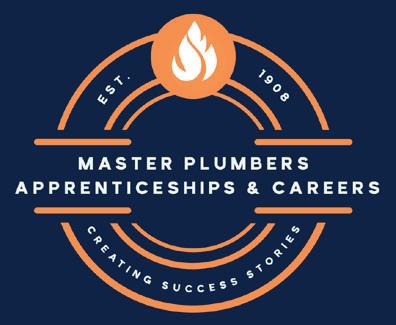
Master Plumbers SA is excited to announce the unveiling of its new Group Training Organisation (GTO) logo, demonstrating a revitalised commitment to supporting the next generation of plumbing professionals.
This new logo highlights our dedication to promoting our GTO services, as a tried-and true pathway for plumbing apprenticeships, skill development, and industry growth.
Through our GTO, Master Plumber SA provides tailored training solutions to meet the growing demands of the plumbing sector, helping apprentices and businesses thrive through structured learning and hands-on experience.
To fully address the needs of plumbing business operations, we will be including administration traineeships to complement our offerings.
This will help our plumbing members to fill administration roles as needed, with business growth and expansion.
“Our Group Training Organisation is ensuring the development of skilled plumbers, to secure the future of our industry,” says Andrew Clarke, Master Plumbers SA/NT Executive Officer.
“We look to engage the next generation with our revitalised logo, and attract them to plumbing as the trade of choice.
We feel it’s important to connect with the youth of today and provide them with career pathways they can pursue, even after they’ve completed their apprenticeship.”
For more information on our Group Training Organisation services, visit our website at www.mpasa. com.au/apprenticeships/apprenticeships-about.

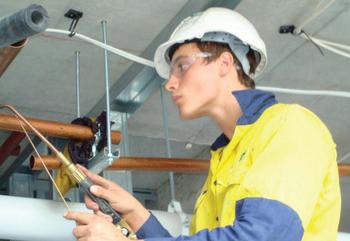
100 YEAR mEmbERS
A J PATERNOSTER & SON PTY LTD W.F. GRAY & CO PTY LTD
50 YEAR mEmbERS
A S CARLSON & SONS PTY LTD
BALDWIN’S PLUMBING & GAS
BRUCE HARRIS PROjECT MANAGEMENT PTY LTD
BT & RB FOREMAN
DINEEN PLUMBING
Eco GrEEn PlumbinG E J northway & Son Pty ltd F S Scott & co Pty ltd
liFE mEmbERS
D. J. HEBBARD
S. B. HALL
GlEnElG north PlumbErS Pty ltd
GlEnElG PlumbinG SErvicES Pty ltd hall & baum n d birchmorE Pty ltd
victor PlumbinG SErvicE
T. DRIVER
B.HARRIS
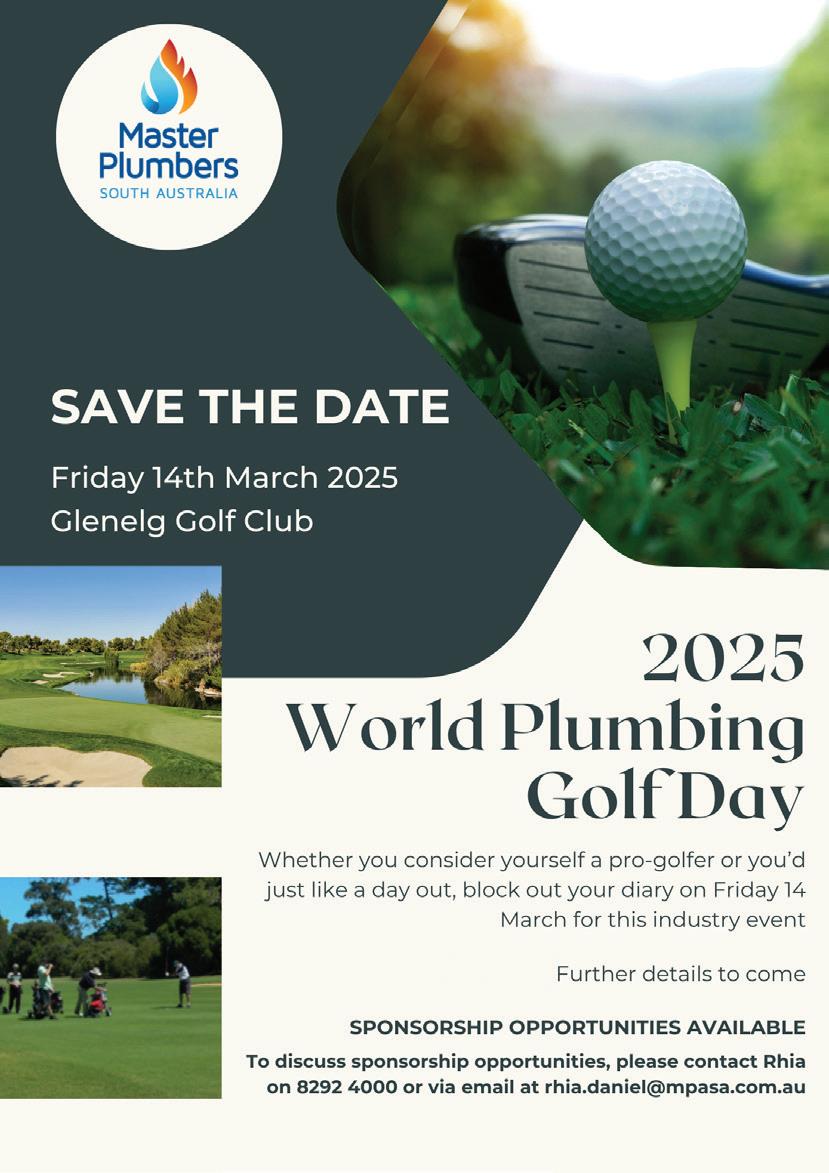


On 10 November 2023, reforms to the Unfair Contract Term (UCT) regime took effect, marking the most substantial changes the regime since the 2016 amendments. The reforms aim to better balance commercial interests and consumer rights, encouraging businesses to review and ensure that their existing standard form contracts comply with the Australian Consumer Law. Under the UCT regime, a term of a contract is void if:
• The contract is a “consumer contract” or a “small business contract”;
• The contract is a “standard form” contract; and
• The term / clause of the contract is “unfair”.
Unless contracted directly by the owner for a residential build, generally, within the construction industry, the UCT regime applies if the relevant contract is a “small business contract”. Under the new UCT regime, a contract is considered a “small business contract” if one of the contracting parties:
• employs fewer than 100 persons; OR
• has a turnover of less than $10,000,000.
As to what constitutes a “standard form” contract, the relevant factors to consider include:
• whether one of the parties has all or most of the bargaining power relating to the transaction;
• whether the contract was prepared by one party before any discussion relating to the transaction occurred between the parties;
• whether one of the parties has made another contract, in the same or substantially similar terms, prepared by that party, and, if so, how
many such contracts that party has made;
• whether another party was, in effect, required either to accept or reject the terms of the contract in the form in which they were presented;
• whether another party was given an effective opportunity to negotiate the terms of the contract;
• whether the terms of the contract take into account the specific characteristics of another party or the particular transaction.
A contract may be determined to be a standard form contract despite the existence of one or more of the following:
a) an opportunity for a party to negotiate changes, to terms of the contract, that are minor or insubstantial in effect;
b) an opportunity for a party to select a term from a range of options determined by another party;
c) an opportunity for a party to another contract or proposed contract to negotiate terms of the other contract or proposed contract.
Elements
A term of a standard form contract is unfair if:
• it would cause a significant imbalance in the parties’ rights and obligations arising under the contract;
• it is not reasonably necessary in order to protect the legitimate interests of the party who would be advantaged by the term; and
• it would cause detriment (whether financial or otherwise) to a party if it were to be applied or relied on.
A party asserting that a term is unfair, must substantiate each of the above elements.



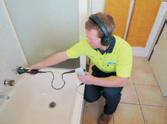


In determining whether a term of a contract is unfair, a court may take into account such matters as it thinks relevant, but must take into account the following:
• the extent to which the term is transparent;
• the contract as a whole.
A term is transparent if the term is:
• expressed in reasonably plain language;
• legible;
• presented clearly; and
• readily available to any party affected by the term.
In Karpik v Carnival plc [2023] HCA 39, a judgment relating to the class action with respect to passengers of the Ruby Princess contracting Covid-19, the High Court recently examined the concept of transparency and its role in determining the fairness of contract terms. The High Court held that:
The greater the imbalance or detriment inherent in the term, the greater the need for the term to be expressed and presented clearly. Conversely, where a term has been readily available and is clearly presented and plainly expressed, the imbalance and detriment it creates may need to be of greater magnitude.
The legislation provides the following, non-exhaustive, list of examples of unfair terms:
• a term that permits, or has the effect of permitting, one party (but not another party) to avoid or limit performance of the contract;
• a term that permits, or has the effect of permitting, one party (but not another party) to terminate the contract;
• a term that penalises, or has the effect of penalising, one party (but not another party) for a breach or termination of the contract;
• a term that permits, or has the effect of permitting, one party (but not another party) to vary the terms of the contract;
• a term that permits, or has the effect of permitting, one party (but not another party) to renew or not renew the contract;
• a term that permits, or has the effect of permitting, one party to vary the upfront price payable under the contract without the right of another party to terminate the contract;
• a term that permits, or has the effect of permitting, one party unilaterally to vary the characteristics of the goods or services to be supplied, or the interest in land to be sold or granted, under the contract;
• a term that permits, or has the effect of permitting, one party unilaterally to determine whether the contract has been breached or to interpret its
meaning;


• a term that limits, or has the effect of limiting, one party’s vicarious liability for its agents;
• a term that permits, or has the effect of permitting, one party to assign the contract to the detriment of another party without that other party’s consent;
• a term that limits, or has the effect of limiting, one party’s right to sue another party;
• a term that limits, or has the effect of limiting, the evidence one party can adduce in proceedings relating to the contract;
• a term that imposes, or has the effect of imposing, the evidential burden on one party in proceedings relating to the contract.
From a construction perspective, possible unfair terms include:
• Indemnities that are too broad and one-sided;
• Limitation on liability that go beyond what is reasonable;
• Termination provisions that are too one-sided;
• Non-disparagement clauses in building contracts;
• Overly harsh liquidated damages terms;
• Unreasonably short periods to lodge notices;
• Warranty provisions that are too broad.
Although there is limited case law on which terms will be deemed unfair in the construction context, the following examples provide some preliminary guidance as to what terms will be considered unfair.
v JJ Richards & Sons Pty Ltd [2017] FCA 1224
In this case, a waste collection business, included the following clause in their contracts:
To the maximum extent permitted by law, the customer shall be responsible for and indemnify JJR from and in respect of all liabilities, claims, damages, actions, costs and expenses which may be incurred by JJR on a full indemnity basis as a result of or arising out of or otherwise in connection with this agreement, including any breach by the customer of any of the warranties, covenants and conditions herein.
The Federal Court deemed this term unfair and void, citing that it caused an imbalance in the parties’ rights by unilaterally conferring an indemnity in favour of JJR. The broad nature of the clause was not reasonably necessary to protect JJR’s legitimate interests.
Australian Securities and Investment Commission v Paypal Australia Pty Ltd [2024] FCA 762
The term in question permitted Paypal to retain fees that it had erroneously deducted from small business customer accounts, unless the business notified Paypal in writing within 60 days of the erroneous charge appearing on the business’ account statement.


The Federal Court held that this term was unfair. The Federal Court’s decision stated the following:
• Paypal was much better placed than small businesses to be able to identify whether there has been overcharges.
• The term limited the rights of small businesses to claim a correction to or compensation for amounts that Paypal wrongly charged.
• There was no corresponding right for small businesses to retain the benefit from undercharging.
In addition to declaring a term void (and potentially an entire contract if it cannot survive the severing of the term) and imposing monetary penalties, Courts can now also:
• vary a contract;
• make orders relating to other existing contracts (whether or not before the Court) that contain the same unfair term as a contract before the Court;
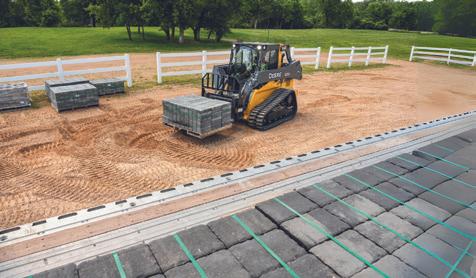
• prevent terms being included in future contracts;
• make orders to prevent or reduce loss or damage that may be caused by the term.
The maximum penalty per contravention for companies is now the greater of:
• $50million;
• three times the value of the benefit;
• 30% of adjusted turnover for breach period. For individuals, the maximum penalty is $2.5million.
Tips
• Terms need to be balanced - consider both points of view.
• Include counter-balancing terms.
• Avoid overly broad terms.
• Make the terms transparent.




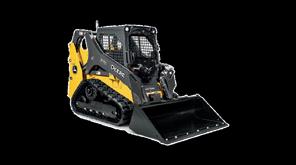
Our Executive Officer Andrew Clarke met with other leaders from Master Plumbers Australia New Zealand to engage with government and opposition ministers to emphasise the key issues that matter to our members and plumbing business owners.
Collectively, MPANZ constituents represent more than 30,000 plumbing businesses from sole operators to Australasia’s largest plumbing contractors.
Our policy prioritises comprise three critical areas:
1. Championing consistent, evidence-based regulation
2. Securing the sustainability and integrity of the plumbing industry
3. Future proofing our skilled workforce
To find out more and to find out more details please scan the QR code.
























Does the phrase “recycled toilet paper” conjure up a yucky mental image for you? You’re far from alone. The good news is, recycled toilet paper is made from things like textbooks and office paper; it’s not second-hand toilet paper!
Recycled toilet paper is manufactured from large bales of recycled paper, which are processed through a pulping machine. The paper is mixed with water to form a pulp, then goes through a process to remove the ink.
The pulp is injected with air, which makes the ink rise to the top, then it is skimmed off and removed. From there, water is squeezed from the pulp by rollers.
The pulp is laid out on a flat screen and dried. Some brands bleach the pulp to make it appear whiter; on it’s own, recycled toilet paper is grey and may yellow over time.
Why use recycled toilet paper?
From The Guardian, each hour we cut down forests the size of Sydney’s Hyde Park to create traditional toilet paper.
That’s over 1 million trees cut down each day.The process of turning solid brown wood into those snowy-white sheets is energy-intensive too.
It takes a massive amount of processing with water and electricity to make the paper strong but pliable. When you think about toilet paper, something you use for 3 seconds and flush away forever – do you care that if it came from an old phonebook? Or would you insist on the virgin wood pulp of the finest trees in Canada’s boreal forest?
Where to buy Australian-made recycled toilet paper? And yes, they all sell 3-ply!
Naturale is manufactured by ABC Tissue Products. ABC Tissue Products has paper mills located in New South Wales and Queensland.
Naturale is proudly certified by the Forest Stewardship Council (FSC)®, and proceeds from their sales resulted in 4000 trees being planted at the Daintree Rainforest revegetation site, to further extend and repair the rainforest. Where to buy: Available at Coles supermarkets for $6.50 for 12 rolls.
Yarn’n

Yarn’n is an Indigenous owned business founded by good mates, a proud Wiradjuri man Lane Stockton and former Wallaby, David Croft.
Indigenous owned and operated, Australian made and 100% recycled, with 50% of profits going directly to the Yalari Foundation.
Yarn’n provides opportunity by educating First Nation Youth, in the hope of creating generational change for a better future. Yarn’n is also sustainably FSC certified, and the rolls are wrapped with artwork from Wiradjuri woman Katrina Graves.
Where to buy: Directly through their website at yarnn.au for $39.00 for 24 double-length rolls, or $65 for 48 doublelength rolls. A subscription model is also available.
About A Dog is a Sydney-based company manufacturing recycled toilet paper. 50% of their profits go to animal welfare organisations, and their rolls are BPA and chlorine-free.
When you purchase from About A Dog, you’ll have the opportunity to learn about their highlighted organisations and then choose which one will benefit from your donation.
Where to buy: Directly through their website at aboutadog.com.au. for $38 per 24 double rolls or $65.00 for 48 double-length rolls.
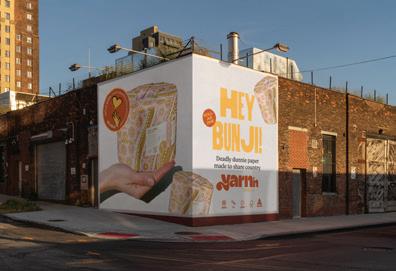
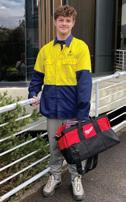






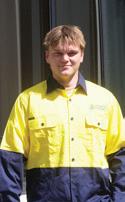
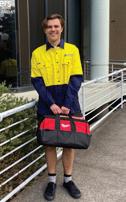

To provide a pipeline of skilled workers for the Building and Construction Industry, CITB provides training subsidies for workers, apprentices and trainees.
CITB training subsidies are available for over 200 short courses
You could be eligible to access up to $3,000 worth of training subsidies every financial year with an approved CITB number

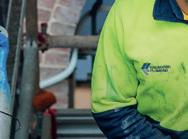


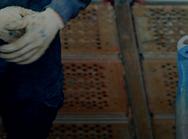


Scan
Extend the life of your products with spare parts that you can trust. Check out the whole range of spare parts available.
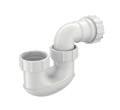


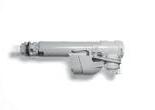
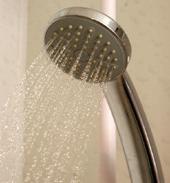
Legionella spp. are bacteria that cause Legionnaires disease, a pneumonia like infection that can be deadly. Every year there are more than 500 notified cases of Legionnaires disease in Australia, with the elderly and the immunocompromised at the greatest risk (Australian National Notifiable Diseases Surveillance System 2014).
Legionnaires disease is caused by inhaling Legionella contaminated aerosols from engineered water systems, such as showers, taps, spas, cooling towers and fountains. Research has shown that Legionella is frequently found in Australian mains drinking water supply (Whiley, Keegan et al. 2014). This means that building plumbing systems are often contaminated with low concentrations of the bacteria.
The problem arises when the bacteria is incorporated into plumbing biofilms (slime) that are attached to the surface of pipes and fittings. These biofilms are communities of microorganisms that are protected from environmental stressors and contain nutrients that support the growth of bacteria like Legionella. One of the simplest ways to control plumbing biofilms is to prevent stagnation. This is why removing dead leg and dead ends is so important (Nisar, Ross et al. 2020).
Stagnation can also occur through outlets not being used regularly. A previous study conducted in South Australia found that 75% of domestic showers were colonised with Legionella bacteria and 64% contained traces of Legionella pneumophilia, which is the strain that most commonly causes Legionnaires Disease.
Interestingly, showers that were not used frequently had the highest concentration of Legionella.This research highlighted the importance of flushing guest bathrooms that are not used frequently, particularly if they are going to be used by vulnerable individuals who are at greatest risk of Legionnaires disease. (Hayes-Phillips, Bentham et al. 2019).

Associate Professor Harriet Whiley1,2
1Environmental Health, Flinders University 2ARC Training Centre for Biofilm Research and Innovation References
Australian National Notifiable Diseases Surveillance System (2014). National Surveillance Case Definitions for the Australian National Notifiable Diseases Surveillance System. Commonwealth of Australia. Department of Health and Ageing. Canberra.
Hayes-Phillips, D., R. Bentham, K. Ross and H. Whiley (2019). “Factors influencing legionella contamination of domestic household showers.” Pathogens 8(1): 27.
Nisar, M. A., K. E. Ross, M. H. Brown, R. Bentham and H. Whiley (2020). “Water stagnation and flow obstruction reduces the quality of potable water and increases the risk of legionelloses.” Frontiers in Environmental Science
Whiley, H., A. Keegan, H. Fallowfield and R. Bentham (2014). “Detection of Legionella, L. pneumophila and Mycobacterium avium complex (MAC) along potable water distribution pipelines.” International Journal of Environmental Research and Public Health 11: 7393-7495.
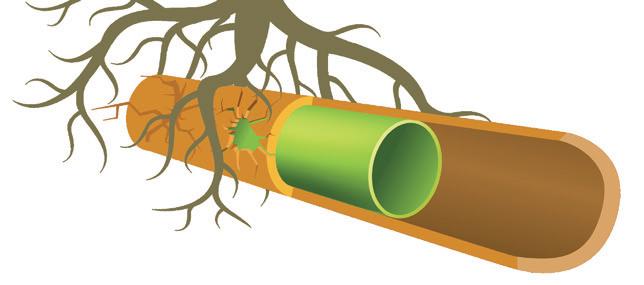


Congratulations to Ebony Lockwood who won our Apprentice of the Month Award. Here’s a little “get to know you” about our award winner
What inspired you to become a plumber?
I’ve always been good working with my hands and knew I didn’t want to be sitting in a classroom for another x amount of years, so during school I thought I’d give plumbing a crack.
I studied my cert 2 in plumbing while carrying out work experience with some companies. I thoroughly enjoyed the work so I decided to make a career out of it.
What would you say to someone who is thinking of becoming a plumber?
Give it a crack. It is a good trade and quite rewarding. Just make sure you’re open to learning and working in harsh conditions! But overall have fun, you’ll meet so many good people along the way!
What do you like to do outside of work?
I love to sleep. But when I can’t, I love spending time with friends and family, staying away from the heat when possible.
What have you enjoyed about your apprenticeship so far? The wide variety of skills I have learned over the years. Plumbing exposes you to heaps of different situations, and I love to problem solve and figure out what needs to be done.
What’s your favourite film or show at the moment?
I’ve been loving the Australia’s most dangerous prisoners. I love crime shows and it’s always intrigued me on what goes through a persons head to commit crimes
N e e d P i p e R e l i n i n g ?
When you sub, we keep a low profile and just get on with making the problem disappear No other company in SA offers trenchless pipe relining solutions that match PPS, so when you're faced with a tricky job you know you're working with the best partner to fix it.
Minimal Disruption
Maintain Your Client
Make a Profit Percentage on the Job



RIDGID RP306 Press Tool, RP218 Press Tool & RINGS for Pressing Copper 15-100mm
Professional Tools Australia announces the RIDGID® RP306 & RP218 Press Tools and PRESS RINGS as part of our commitment to continual development of technological precision products.
The new next generation press tools and rings are a significant addition to the already strong line-up of RIDGID press tools and accessories.
The RP306 32kN press tool is a next-generation press tool using advanced technology to provide a stable output force with a capacity of 10-100mm copper tube, composite tube, and 10mm-50mm thin-wall stainless steel tube, carbon steel tube.
The RP306 features a 270° rotating head, bright LEDs for low-light environments, light weight of only 2.6kg and a shoulder strap.
The RP218 24kN press tool has a pressing capacity of 12mm-32mm (Copper), 12mm-25mm (Stainless Steel), 12mm-50mm(PEX) and features a LCD Interface which provides the status of the tool, battery percentage, pressing times and maintenance notifications.
Both of the new press tools are available as a tool only or in various kits including jaws for copper, battery, charger and case.
New to RIDGID pressing is also the PRESSING RINGS for copper 15mm to 100mm to suit 32kN press tools and 15mm to 32mm to suit 24kN press tools.
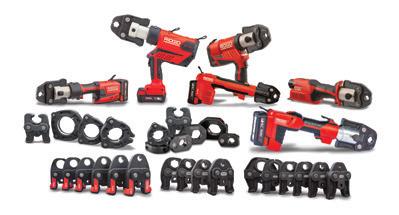


We couldn’t be prouder of our apprentice Ebony Lockwood for winning gold at the WorldSkills SA Regional Open 2024!
Ebony competed in the Regional Open Plumbing and Heating competition, hosted by PEER. The challenge was to construct and weld together a map of Australia.
She is pictured with her MPA SA Field Officer Brock, who came out to support his apprentice through the five-hour challenge.
Her victory means she’s eligible to represent SA at next year’s National Championships in Brisbane

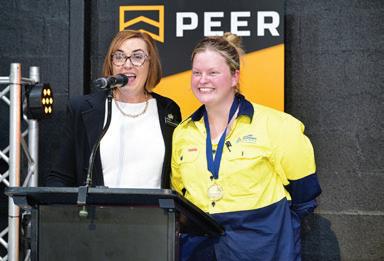

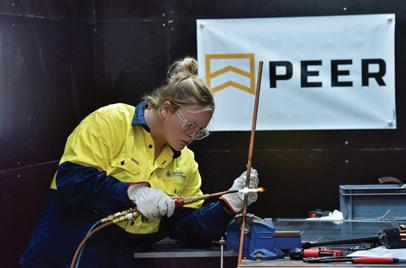



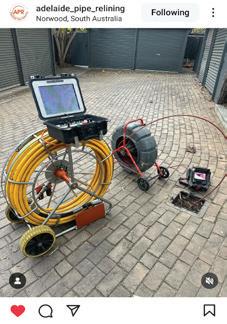





› Enrol your apprentice anytime
› Industry relevant training with engaged trainers
› We keep you regularly informed about call up schedules
› Ongoing support to help your apprentice succeed
› Award-winning Trade Training Centre
Haven’t seen our facilities? Experience the PEER difference, tour our facilities.























Sponsorship of Master Plumbers makes It possible for us to add significant value to the service we provide to our members. We wish to express our sincere appreciation to our Branch Sponsors for their generous support.
Please support them by purchasing their goods or services.

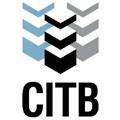







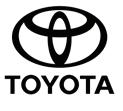

Abey Australia
9747 7777
Architectural Water Solutions Pty Ltd 08 8947 3677
Arthur J Gallagher 08 8172 8121
Australian Gas Networks 0447 930 657
AusPress Systems Pty Ltd 08 8374 3426
BioCycle - Jowa Group Pty Ltd 08 8381 9100
Caroma Industries 08 8405 0311
CBUS
Chromagen Australia Pty Ltd
Crystal Clear Purification Systems
Davey Water Products
Eco Building Supplies
Enware Australia Pty Ltd
361 784
8346 8331
8340 4344
8346 0947
8277 2467
8352 3577
Gramall Hot Water Systems 08 8251 2979
Harsmith Building Products 0408 516 682
Hydraulic Consultant Association 0408 825 618
Iplex Pipelines
KPI Business and Tax Advisory
8256 2031
001 132 Milwaukee Power Tools 0438 827 937 Office of the Technical Regulator
8226 5500 PEER
Perks
Pete’s Treat Waste Water Solutions
Pickard Trade Centre
Plastec Australia Pty Ltd
8348 1200
8273 9300
8556 4111
8366 7760
5413 4444
9600 1899
3248 9600
